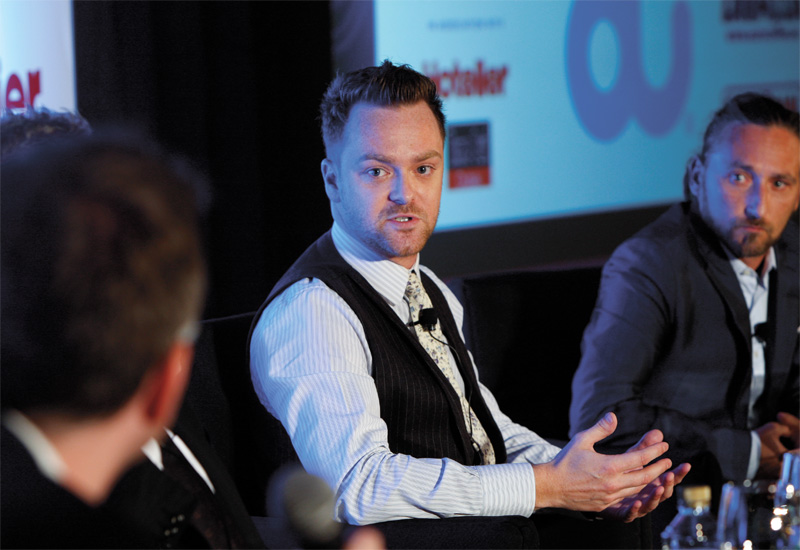Different Mentality
The panel session followed the opening debate at the Bars & Nightlife Forum which discussed the evolution of the UAE’s nightlife and addressed the differences between hotel, restaurant and club operations.
Moderator Greg Dufton, co-founder of Think ME, the event management company hired by Atlantis The Palm to run Sandance, said: “To be honest there’s not a lot of hotel people who really get nightlife”.
Independent operators Markus Thesleff, co-founder of Okku Dubai, and Richard Haddon, club operations manager at Movida Dubai, agreed, saying they operated their venues in different ways to hotels.

| Advertisement |
“If you look around you’ll see everyone is chasing to put a nightclub in their hotel because they think it’s easy revenue,” said Thesleff. “It’s not. We cross both boundaries, we’re mainly a restaurant but we do some late nights, and at the end of the day it’s probably the hardest segment to cater for... I don’t care whether you’re a restaurant or late night venue, you pretty much have two hours to make money from a customer, after that they go somewhere else.”
This was the challenge for Movida, a tenant at Radisson Royal Hotel Dubai, said Haddon, which opens only on three nights of the week, for four hours a night — the type of club model advocated by Keane.
Haddon revealed: “Out of those 12 hours we’re only busy six of those, so in six hours a week we need to turn over in the region anywhere between 750,000 and a million dirhams, so the pressure that we have during those hours is monumental”.
In addition, hotels need to go back to the drawing board when it comes to venue design, said Cirque Du Soir club manager Sam Razaghi during a panel, ‘Crafting an outlet’s unique value proposition’.
He said people with a “deep understanding of hospitality” needed to be present in nightclub design, adding that clubs could learn from the design of those in Las Vegas.
“I see a lot of beautiful places in Dubai that are not nightclub settings. In Vegas they build the money-making aspects of the room, and then they bring the design to it.”
He also said that the old adage of “location, location, location” didn’t necessarily apply to nightclubs. “Many venues are in great locations but lacking business due to poor concepts.
There are venues out of reach people are willing to travel to — they’re great concepts.”
He added: “We keep comparing ourselves to Las Vegas — they work together and market themselves as a playground for adults — the more concerts, festivals we have, more nightclubs, the more they will market us for tourists.
Just because there’s four nightclubs it may impact you in short-term investment, but in the long-term the city will eventually get to a place where everyone in the world wants to try it.”
The story in short
The Caterer Middle East Bar & Nightlife Forum uncovered some critical issues impacting the UAE’s nightclub sector.
The lack of venues with late-night or all-night operating hours was highlighted as being out of date and the result of a “hotel mentality”, while venues designed without functionality or operations in mind were criticised for greatly hindering the financial success of a business.
The main challenge faced by hotels, however, was the gap in understanding of how to run a nightclub.
Independent bar, restaurant and club operators explained the pressure on their operations, which in some cases only have a window of about six hours a week to hit revenue targets, and said this was vastly different from the 24-hour hotel business.









 Search our database of more than 2,700 industry companies
Search our database of more than 2,700 industry companies










Aug 17, 2013 , United Arab Emirates
Overall I totally agree with the verdict of the article. Hotel mentality cannot deal with nightlife. Nothing really new and nothing which happens only in the Middle East. I am a bit hesitant if it comes to a comparison with Las Vegas! This might be a too big order for the UAE. There are also to...